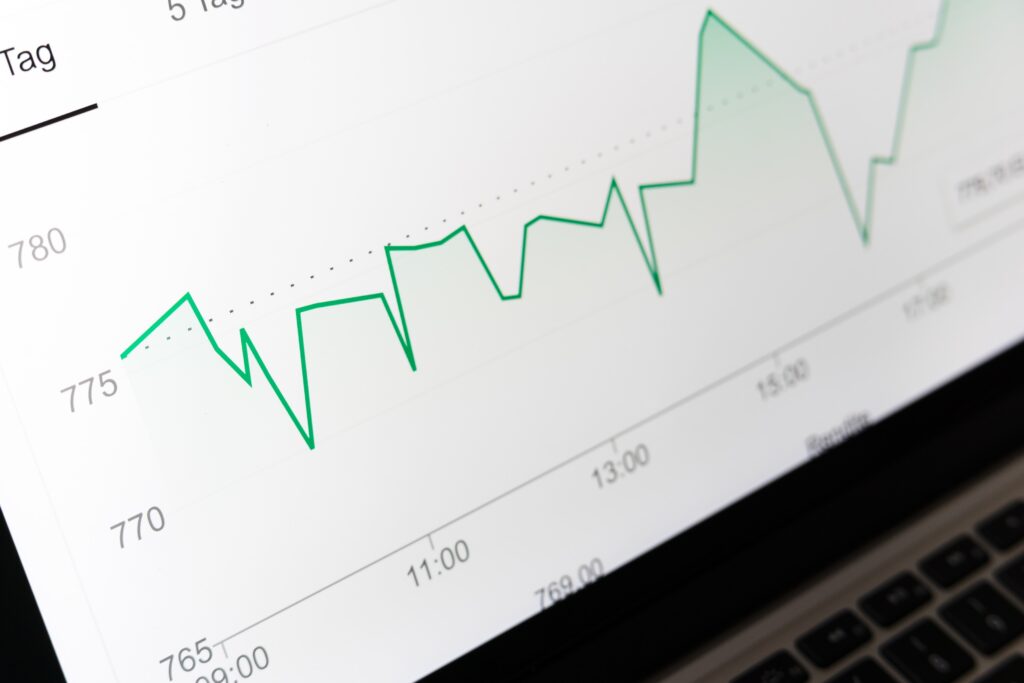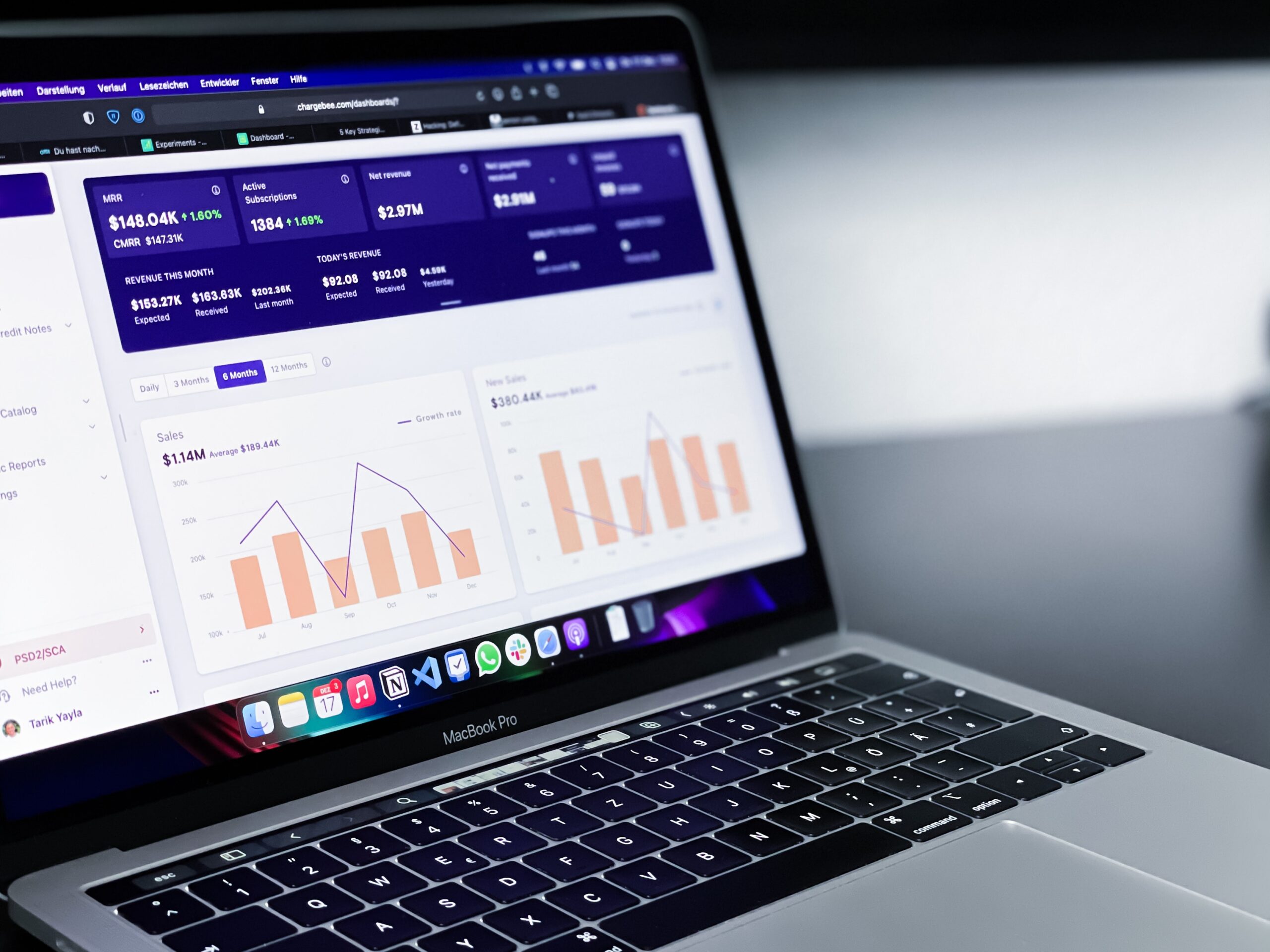Introduction
In the changing digital ecosystem, data analytics has become a critical element of successful digital marketing strategy, embodying the essence of data analytics in digital marketing. Aside from altering how businesses handle client participation, data analytics integration in digital marketing effectively transforms marketing from an art form into a precise, data-driven science. Companies can design marketing campaigns that are more successful, tailored, and memorable because of this combination. By using data analytics to examine customer behavior, campaign performance, and overall return on investment (ROI), we examine the various ways that digital marketing is revolutionizing.
Data analytics is the intricate process of obtaining, analyzing, and applying various forms of data to refine and optimize marketing campaigns in digital marketing. From predicting future trends and comprehending customer preferences to improving campaigns and making decisions instantly, data analytics provides marketers with valuable information. To make digital marketing more targeted, effective, and engaging, this essay looks at how data analytics is crucial.
For an in-depth exploration of how customer insights, derived from data analytics, are pivotal for business expansion, and to understand their direct relevance to enhancing digital marketing strategies, consider reading ‘5 Key Insights: Harnessing the Power of Customer Insights Analysis for Business Growth.’ This article offers valuable perspectives on leveraging data-driven insights for significant business improvement, perfectly complementing the core themes discussed here regarding data analytics in digital marketing.”

What is Data Analytics in Digital Marketing?
Before delving deeper into the roles and impacts of data analytics in digital marketing, it’s important to understand what exactly it entails. Data analytics in digital marketing refers to the process of collecting, analyzing, and leveraging various forms of data to enhance marketing strategies. This encompasses a range of activities from customer behavior analysis to real-time decision-making, all aimed at making Marketing efforts more data-driven and results-oriented.
Why is Data Analytics Important in Digital Marketing?
After understanding what data analytics in digital marketing entails, it’s crucial to explore its importance. This question leads us to the heart of how data analytics is not just a part of the digital marketing landscape but a driving force behind its evolution and effectiveness. In the following sections, we’ll uncover the various ways in which data analytics is essential for digital marketing success.
The Role of Data Analytics in Digital Marketing
Data analytics plays a pivotal role in digital marketing, offering deep insights into consumer behavior, preferences, and trends. It equips marketers with the tools to make informed decisions, tailor their strategies, and measure the effectiveness of their campaigns. By analyzing vast amounts of data, businesses can refine their marketing tactics for maximum impact and efficiency.

-
Understanding Customer Behavior
- Segmentation and Targeting: Analytics enables precise customer segmentation based on demographics, purchasing habits, and browsing history, vital for crafting targeted marketing messages.
- Customer Journey Analysis: Tracking the customer journey across various touchpoints reveals preferences and behaviors, fostering more effective marketing strategies.
-
Campaign Optimization
- Performance Tracking: Tools like Google Analytics provide real-time insights into campaign performance, guiding marketers on what resonates with the audience.
- A/B Testing: This technique helps identify the most effective elements of a webpage or ad in driving conversions.
- ROI Analysis: Data analytics plays a critical role in calculating the return on investment, and steering investment decisions for optimal impact.
-
Personalization and User Experience
- Content Customization: Data-driven insights enable the creation of content tailored to different audience segments.
- Website Optimization: Analyzing user behavior on websites informs layout, loading time, and content placement optimizations, enhancing user engagement.
-
Predictive Analytics
- Trend Forecasting: Leveraging historical and current market data, predictive analytics can project future consumer behaviors and trends.
- Product Recommendations: E-commerce platforms utilize analytics to suggest products, augmenting sales opportunities.
-
Social Media Insights
- Engagement Analysis: Data analytics provides clarity on which posts garner the most engagement, shaping social media strategies.
- Influencer Impact: The effectiveness of influencers and social media campaigns on brand awareness and sales can be quantified through analytics.
-
Real-Time Decision Making
- Adaptability: Real-time data analysis enables agile adjustments in marketing strategies, aligning them with current market dynamics.
- Crisis Management: Quick identification and resolution of issues or negative trends are facilitated by real-time data analytics.
-
SEO and Online Visibility
- Keyword Analysis: Identifying effective keywords aids in optimizing website content for search engines.
- Backlink Analysis: Assessing the quality and quantity of backlinks is critical for SEO strategy.
Challenges and Considerations

Despite the immense benefits of data analytics in digital marketing, it presents various challenges and considerations. Effective and responsible data usage demands navigating complexities ranging from adherence to data privacy laws to maintaining data integrity and security. Marketers must address these challenges to fully leverage analytics ethically and sustainably.
-
Data Privacy and Compliance
- Regulatory Compliance: Navigating the intricate landscape of data protection laws like GDPR and CCPA is imperative to avoid legal repercussions.
- Consumer Privacy Concerns: Balancing data analytics utilization with consumer privacy respect is critical, necessitating transparent data collection and usage practices.
-
Data Quality and Management
- Accuracy of Data: The reliability of data analytics hinges on the accuracy of the data itself, necessitating rigorous data quality management.
- Integration of Multiple Data Sources: Harmonizing data from diverse sources presents a significant challenge but is essential for comprehensive analytics.
-
Skillset and Knowledge Requirements
- Need for Specialized Skills: Proficiency in data science and analysis is crucial for the effective use of data analytics tools.
- Continuous Learning: The rapidly evolving field of data analytics demands ongoing skill development and adaptation.
-
Ethical Considerations
- Bias in Data: Mitigating data collection and analysis biases is essential to avoid skewed marketing strategies.
- Manipulative Marketing Practices: Ethical considerations must guide the influence of data on consumer behavior.
-
Technology and Integration
- Keeping Up with Technological Advances: Staying abreast of the latest advancements in data analytics technology is challenging but necessary.
- Integration Challenges: Seamlessly incorporating data analytics into existing marketing strategies and systems requires significant effort and resources.
-
Resource Allocation and ROI
- High Initial Investment: The implementation of data analytics solutions often demands substantial initial investment.
- Measuring ROI: Assessing the return on investment for data analytics initiatives, especially in the short term, can be complex.
-
Security Risks
- Data Breaches and Cybersecurity Threats: Managing large volumes of data increases exposure to cyberattacks and data breaches, necessitating robust security measures.
Looking Ahead: The Future of Data Analytics in Digital Marketing
As we look to the future, the role of data analytics in digital marketing is poised for even greater significance. Emerging technologies and methodologies will further enhance the capacity to glean insights and drive marketing innovation. For businesses and marketers, staying informed and adaptable to these changes will be key to harnessing the full potential of data analytics. The journey into the future of digital marketing, powered by data analytics, is an exciting one, filled with opportunities for growth and success.

Conclusion
Effective digital marketing plans now require data analytics as a necessary component. To better target marketing campaigns to specific consumer demands, this field is vital because it provides in-depth insights into consumer behaviors and preferences. Enterprises may greatly improve user experiences by employing advanced data analysis techniques, which render interactions more seamless and customized for every client. By providing more individualized and interesting content, this capacity to fine-tune marketing methods aids in both consumer acquisition and retention.
In addition, targeted marketing is made possible by data analytics, allowing advertising campaigns to be focused on the audiences or individuals most likely to react favorably. A higher conversion rate and a better return on investment result from this focused approach, which makes sure that marketing resources are employed more effectively.
It is estimated that the use of data analytics in digital marketing will become even more widespread and effective as long as technology developments keep happening. Businesses are becoming more genius at analyzing data thanks to emerging technologies like machine learning and artificial intelligence, which help them anticipate consumer behavior more accurately and modify their marketing plans instantly. For companies eager to involve innovation and thrive in a fiercely competitive digital environment, this transition holds promise for new opportunities. These companies have a great prospect of making use of the increasing potential of data analytics to obtain a significant competitive advantage and establish themselves as leaders in their respective fields.


